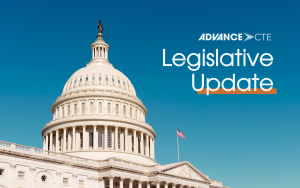 Both the House and the Senate were in session this week as lawmakers struggled to find consensus on a pathway forward on federal fiscal year 2024 (FY24) funding. With only a few legislative days left on the Congressional calendar until the start of FY24, the status of federal funding is currently uncertain.
Both the House and the Senate were in session this week as lawmakers struggled to find consensus on a pathway forward on federal fiscal year 2024 (FY24) funding. With only a few legislative days left on the Congressional calendar until the start of FY24, the status of federal funding is currently uncertain.
FY24 Funding Remains in Focus
On Tuesday, the House formally reconvened after Congress’ annual August recess. The Senate has been in session since last week and is working to advance a “minibus” funding legislation– a measure containing three of the 12 individual spending bills that compose the federal budget. As a reminder, the Senate Appropriations Committee has advanced each of the 12 FY24 spending bills out of committee for full consideration by the Senate just before the August recess. These measures included a proposed $40 million in increased funding for the Carl D. Perkins Career and Technical Education Act’s (Perkins V*) basic state grant program.
These efforts stand in stark contrast to the House, where Republican lawmakers have struggled to find consensus on a much broader swath of their FY24 spending proposals. Broadly, the Chamber remains much further behind than the Senate. More importantly, Republican lawmakers in the House are advancing spending proposals that cut federal funding, including for other significant education and workforce development efforts, by significant amounts beyond the requirements of the bipartisan Fiscal Responsibility Act (FRA) approved earlier this year.
The Senate’s and House’s respective visions for FY24 funding remain dramatically far apart. With only a few legislative days left before the next fiscal year begins on October 1, legislation that would extend current funding levels for a specified period of time (known as a Continuing Resolution or “CR”) will be needed. However, conservative factions in the House have indicated that they will not support a CR without steep spending cuts and a number of other policy concessions, including consideration of the impeachment of President Biden. These demands are not supported by the White House or party leadership in the Senate, leaving all three at an impasse during this critical juncture of the appropriations process.
The extreme distance between the House and Senate FY24 spending proposals and the positions currently taken by the House, Senate, and the White House mean that negotiations in the coming weeks are likely to be contentious and the potential for a government shutdown remains elevated. As these negotiations take place, The National School Boards Association (NSBA) will continue to advocate continued government operations without disruption and for robust funding for critical funding streams important to the K-12 community.
As these talks move forward, Advance CTE will continue to advocate for robust funding for critical funding streams important to the CTE community. Be sure to let your Senators and Representatives know how important CTE funding is by clicking here!
*As amended by the Strengthening Career and Technical Education for the 21st Century Act

